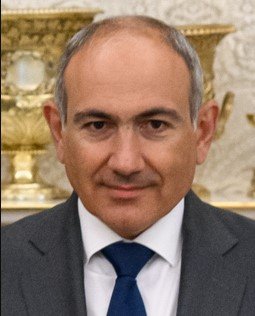Armenian Prime Minister Nikol Pashinyan arrived in Egypt today to join a major peace summit in Sharm el-Sheikh. The event, co-hosted by U.S. President Donald Trump and Egyptian President Abdel Fattah al-Sisi, brings together leaders from over 20 countries to discuss lasting stability in the Middle East after a recent Gaza ceasefire.
This gathering marks a critical moment for regional diplomacy. It follows a fragile truce in Gaza and aims to build on recent breakthroughs, including a peace deal between Armenia and Azerbaijan.
Summit Goals and Agenda
Leaders at the summit plan to focus on key issues like ceasefire enforcement and economic recovery in conflict zones. Discussions will cover ways to prevent future violence and support rebuilding efforts.
The agenda includes talks on humanitarian aid and border security. Experts say this could lead to new agreements that strengthen ties among attending nations.
One highlight is the role of non-Middle Eastern countries like Armenia and India. Their input might offer fresh views on global peace efforts.

Key Attendees and Their Roles
More than 20 world leaders have confirmed attendance, creating a diverse group for open dialogue. This mix includes heads from Europe, Asia, and the Arab world.
Pashinyan joins Azerbaijani President Ilham Aliyev, adding a layer to talks amid their recent peace agreement. That deal, signed in August 2025, ended decades of conflict over Nagorno-Karabakh.
Other notable figures include Turkish President Recep Tayyip Erdogan and representatives from France and Germany. The UN Secretary-General and Arab League officials will also contribute.
Here is a quick look at some participating countries and their leaders:
| Country | Leader or Representative |
|---|---|
| Armenia | Prime Minister Nikol Pashinyan |
| Azerbaijan | President Ilham Aliyev |
| Egypt | President Abdel Fattah al-Sisi |
| United States | President Donald Trump |
| Turkey | President Recep Tayyip Erdogan |
| France | High-ranking delegate |
| Germany | High-ranking delegate |
This table shows the broad international support for the summit’s goals.
Background on Armenia’s Involvement
Armenia’s participation comes at a time of shifting alliances in the South Caucasus. Pashinyan has pushed for stronger ties with Western nations while resolving old disputes.
The Armenia-Azerbaijan peace deal, mediated by Trump, includes plans for a corridor linking Azerbaijan to its Nakhchivan region through Armenia. This could boost trade and reduce tensions.
Pashinyan’s trip to Egypt follows his recent visits to Brussels for global forums. There, he highlighted Armenia’s “Crossroads of Peace” project to connect Europe and Asia.
Experts note that Armenia’s role in Middle East talks might help it gain support for its own security needs. With ongoing global conflicts, such summits offer chances for broader cooperation.
Potential Outcomes and Challenges
Analysts expect the summit to produce a joint statement on peace steps. This might include aid packages for Gaza and monitoring systems for ceasefires.
However, challenges remain. Key players like Israel and Hamas are absent, which could limit progress on core issues.
Despite this, the event builds on Trump’s earlier mediation successes. His involvement in the Armenia-Azerbaijan deal shows how U.S. leadership can drive change.
If successful, the summit could inspire similar efforts in other hotspots. For now, all eyes watch for concrete results from Sharm el-Sheikh.
Global Reactions and Next Steps
World media outlets have praised the summit’s inclusive approach. Posts on social platforms show public hope for real progress in Middle East peace.
Reactions vary, with some users questioning why leaders from outside the region attend. Others see it as a smart way to bring diverse ideas.
Looking ahead, follow-up meetings might happen in coming months. These could focus on implementing any new agreements.
The summit’s timing aligns with other 2025 events, like UN assemblies on conflict resolution. This keeps momentum for global stability.
What do you think about this summit’s potential impact? Share your thoughts in the comments and pass this article along to spark discussions.
